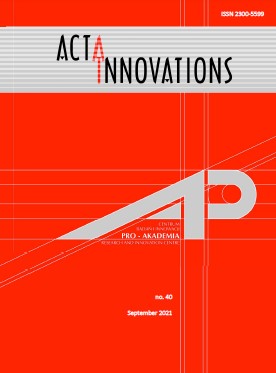SUSTAINABILITY ASSESSMENT OF DIFFERENT NANOPARTICLE FOR HEAT EXCHANGER APPLICATIONS: AN INTUITIONISTIC FUZZY COMBINATIVE DISTANCE-BASED ASSESSMENT METHOD
SUSTAINABILITY ASSESSMENT OF DIFFERENT NANOPARTICLE FOR HEAT EXCHANGER APPLICATIONS: AN INTUITIONISTIC FUZZY COMBINATIVE DISTANCE-BASED ASSESSMENT METHOD
Author(s): Sunil Kumar, Sandeep Kumar Gautam, Ankush Kumar, Rajesh Maithani, Anil KumarSubject(s): Energy and Environmental Studies, Methodology and research technology
Published by: Centrum Badań i Innowacji Pro-Akademia
Keywords: heat transfer; nanoparticles; intuitionistic fuzzy set;
Summary/Abstract: The rate at which the conventional energy sources are depleting is a matter of concern, and there have been major attention on this to make the thermal systems environment friendly, efficient, economic, sustainable, technically reliable. Sustainability of five different types of nanoparticles (Ceramic, carbon based, metal based, polymeric, and lipid based) from the perspective of four aspects involving cost, efficiency, technicality and environmental effect, in heat exchangers has been assessed. The analysis is carried out using the intuitionistic fuzzy combative distance-based assessment (𝐼𝐹𝐶𝑂𝐷𝐴𝑆) method. In order to measure the sustainability of nanoparticles, a set of eleven evaluating criteria have been accredited on the basis of expert opinions and focus group meetings. By amalgamating the intuitionistic fuzzy set (IFS) theory as well as the use of distance-based assessment (𝐶𝑂𝐷𝐴𝑆) method, the 𝐼𝐹𝐶𝑂𝐷𝐴𝑆 method has permitted the decision-makers to rate the alternative five nanoparticles pertaining to each criterion. On the basis of the results obtained from 𝐼𝐹𝐶𝑂𝐷𝐴𝑆 method, it is observed that the carbon-based nanoparticles have an immense potential to provide significantly reliable and sustainable thermal system than other nanoparticles.
Journal: Acta Innovations
- Issue Year: 2021
- Issue No: 40
- Page Range: 44-63
- Page Count: 20
- Language: English

